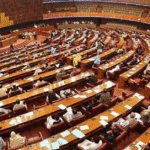Indian External Affairs Minister S. Jaishankar is scheduled to visit Pakistan for the upcoming Shanghai Cooperation Organisation (SCO) meeting, set to take place in Islamabad on October 15-16. This visit marks a significant diplomatic engagement, as it will be the first time a senior Indian official has attended an SCO meeting in Pakistan since both countries joined the organization as permanent members in 2017.
Context of the Invitation
India confirmed on August 30 that it received an invitation from Pakistan for Prime Minister Narendra Modi to attend the SCO Council of Heads of Government meeting. However, with Modi not attending, the responsibility falls on Jaishankar to represent India at this crucial summit. The invitation signifies a willingness from both sides to engage in dialogue despite the longstanding tensions that have characterized India-Pakistan relations.
The SCO’s Role and Objectives
The SCO, established in 2001 during a summit in Shanghai, aims to promote regional cooperation among its member states in areas such as security, economic collaboration, and cultural exchanges. The founding members include Russia, China, Kyrgyzstan, Kazakhstan, Tajikistan, and Uzbekistan. India and Pakistan were admitted as permanent members in 2017, while Iran joined the organization as a permanent member during a virtual summit hosted by India in 2022.
As a significant trans-regional organization, the SCO plays a pivotal role in addressing various issues, including terrorism, trade, and regional stability. The upcoming summit will focus on enhancing financial, economic, socio-cultural, and humanitarian cooperation among the member states, which is particularly relevant given the global economic challenges posed by the COVID-19 pandemic and geopolitical tensions.
Structure of the Upcoming Summit
Pakistan, as the chair of the SCO for this council, will host a two-day summit, featuring a series of meetings, including a ministerial gathering and discussions among senior officials. The agenda will cover various topics, including strategies for economic collaboration and frameworks for addressing regional security concerns.
Jaishankar’s presence is significant not only for India but also for Pakistan, as it could open doors for dialogue and cooperation between the two nations. Given the historical context of their relationship, the summit may serve as a platform for both sides to address pressing issues, although it remains to be seen whether meaningful discussions will take place.
Previous Engagements and Historical Context
The backdrop of Jaishankar’s visit is marked by a complex history between India and Pakistan. Relations have often been strained due to several factors, including territorial disputes, cross-border terrorism, and political tensions. Despite these challenges, both countries have engaged in various diplomatic dialogues over the years, with the SCO serving as one of the platforms for such interactions.
In 2023, India hosted the SCO Summit virtually, during which former Pakistani Prime Minister Shehbaz Sharif participated via video link. This arrangement highlighted the limitations of direct engagement, as diplomatic relations between the two countries have often been characterized by distance and hesitance to meet face-to-face.
Implications of Jaishankar’s Visit
Jaishankar’s visit carries several implications for both India and Pakistan. For India, attending the SCO summit underlines its commitment to regional cooperation and multilateral engagement, despite the historical animosities with Pakistan. It presents an opportunity to reaffirm its role as a key player in regional geopolitics.
For Pakistan, hosting an Indian minister is a step towards normalization of relations, signaling an openness to dialogue. The successful organization of the summit could bolster Pakistan’s international standing and demonstrate its ability to host significant diplomatic events.
The Broader Geopolitical Landscape
The SCO’s growing prominence in the international arena is evident as it expands its focus beyond regional security to include economic cooperation and cultural ties. The involvement of major powers like China and Russia adds a layer of complexity to the organization, as their interests often intersect with those of India and Pakistan.
The summit in Islamabad could set the tone for future engagements among member states, especially as global dynamics shift in response to various geopolitical tensions. Issues such as terrorism, economic stability, and trade partnerships will be at the forefront of discussions, making the summit a critical juncture for collaboration.
Expectations and Challenges
While the summit presents an opportunity for dialogue, significant challenges remain. The entrenched positions of both India and Pakistan on various issues, including Kashmir and cross-border terrorism, could overshadow discussions. Additionally, domestic political pressures may influence the extent to which both governments can engage meaningfully during the summit.
Observers are cautiously optimistic about the potential outcomes of the meeting. The mere act of Jaishankar attending the summit could signal a thaw in relations, but whether this leads to concrete steps towards reconciliation is uncertain.
As External Affairs Minister S. Jaishankar prepares for his visit to Pakistan for the SCO summit, the event represents a pivotal moment for Indian-Pakistani relations and regional diplomacy. With a focus on economic, security, and humanitarian cooperation, the summit has the potential to reshape interactions among member states. However, the deeply rooted historical tensions pose significant challenges to achieving meaningful outcomes.
As the world watches closely, the SCO summit in Islamabad will be a critical test of diplomacy, cooperation, and the ability of nations to engage constructively despite their differences.
#SCO #Jaishankar #Pakistan #IndiaPakistanRelations #Diplomacy #RegionalCooperation







